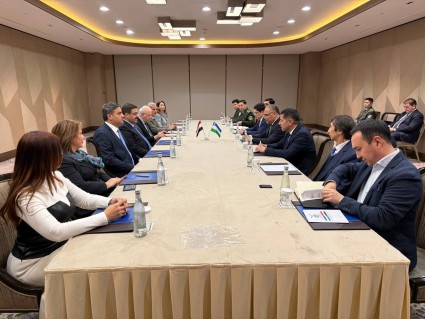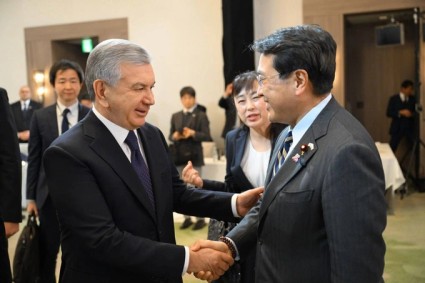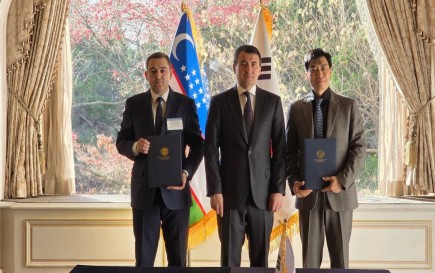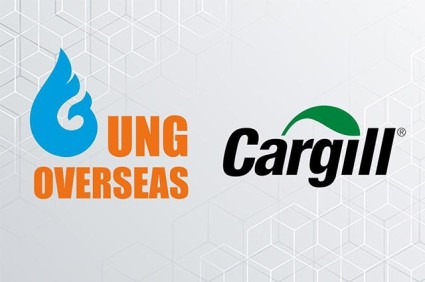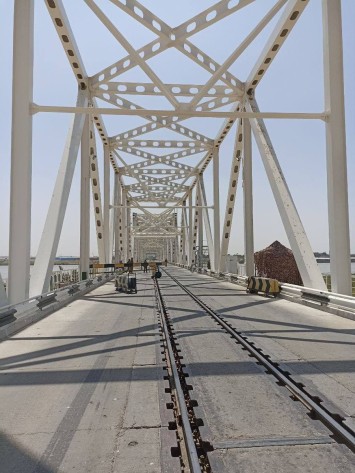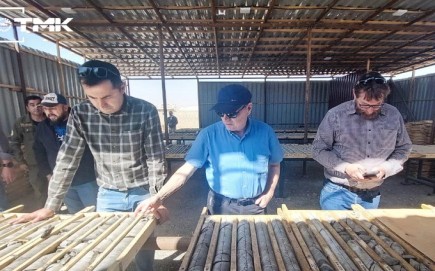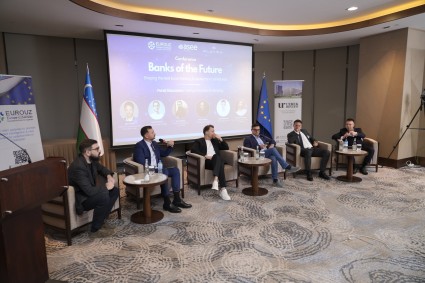Officials of the Ministry of Finance, the Ministry of Investments and Foreign Trade, the State Assets Management Agency, together with the senior executives of Indorama Corporation and The Coca-Cola Company, discussed expanding the privatization program in Uzbekistan.
The meeting took place on March 25 as part of the Tashkent International Investment Forum. The CEO of Indorama Corporation Prakash Kejriwal made a number of proposals to increase investor interest in the country's privatization program.
Prakash Kejriwal said it is important that each of the assets being privatized has a certain timeframe for completing the transaction, because this keeps the interest of potential investors.
“If the decision to privatize a certain asset is delayed from year to year, then good investors will eventually lose interest in it,” he said.
He added that the investment obligations that the state puts before investors should be lifted.
“Because as soon as an investor buys an asset, he values вАЛвАЛthe asset at its commercial value. He has a plan for what he wants to do with this asset. And therefore, there should be no prescription that an investor must manage an asset one way or another, must produce certain things, or that assets should be treated as a social object to create social employment,” he said.
Otherwise, the private investor will end up failing in the long run if it sticks to the guidelines, the chief executive of Indorama Corporation said. According to him, "the government of Uzbekistan is already thinking in this direction, which is very important."
An investor believes that if the state decided to privatize a large asset, then "he would be prudent not to make any new investments in these assets by the government."
“Except for regular investments for upkeep and maintenance. Because if this happens, if you make new investments, you will only increase the value for the investor, which may make this investor not interested in these new investments,” he said.
Prakash Kejriwal argues that investors could have invested these funds in a different and more efficient way, introducing other technologies, so the government is "wise" to refrain from new investments in an asset that is planned to be privatized.
In addition, it is necessary that there is no interest and investment from the state in the sector where private investors are attracted, the executive director of Indorama Corporation believes.
“Otherwise, there will be a conflict of interest, because if the policy makers, who are responsible for making policy, have a commercial interest in this sector, there will always be conflicts [of interest] and this will not attract investors,” he stressed.
Prakash Kejriwal also believes that geological assets should be privatized with the presentation of a value chain program, otherwise the assets will be invested only for resource extraction, which in the long term "is not good for the country."
The state also needs to create a "single window" for investors who come to the market of Uzbekistan, establish regular interaction with them in order to jointly create a favorable environment, he added.
Deputy Minister of Investments and Foreign Trade Shukhrat Vafaev supported the idea of вАЛвАЛcreating a "single window", but pointed out some nuances.
“Based on our experience, doing this is not as easy as saying. Because, first of all, you need to have capable staff in your department that works with investors. In our case, this is the Foreign Investment Promotion Agency. Secondly, these employees should keep you informed of all the changes that are taking place in the country, and changes happen every day. And thirdly, I believe that the concerns and questions that investors bring to the agency should be reflected and sent to other colleagues in other government agencies so that they know, understand and appreciate the questions that investors usually raise,” he said.
The deputy Minister said that the agency is trying to organize work and activities in this way. “Partly successful. However, there is a lot of room for improvement. We will work on this,” agreed Shukhrat Vafaev.
Prakash Kejriwal also spoke about the social and environmental aspects of privatization.
“Of course, it is very important to have a plan to mitigate legacy environmental problems. Because the new investor doesn't want to be swindled for something that has been done in the past, because he didn't do it," he said.
It is necessary to determine the initial conditions (baseline) of the pollution or other environmental problems that have occurred, the investor said.
“And the obligation of the new investor should be not to worsen the initial conditions. There should be a fine [in case of violation]. And, of course, it should be encouraged to improve the initial conditions, in a sense, provide bonuses, ”he explained.
Regarding the social aspects of privatization, the CEO of Indorama Corporation spoke about his experience with the Kokand Superphosphate Plant, which employed about 450 people at the time of privatization in the summer of 2019.
“And we realized that over 100 employees were so-called home workers. There seemed to be employment, but it was not real employment,” said Prakash Kejriwal.
According to him, the issue of employment should be considered in terms of the number of man-hours.
“You can have a thousand employees, but how many man-hours are spent on that thousand employees? Otherwise, you just take them on payroll, but they don't really contribute to man-hours, so they don't really do homework to the extent that they should do in a full-time job… We've grown to be more than 500 employees due to expansion. We increased [the number of employees], but we did it in a more sustainable way. So this is a long-term, stable employment,” he said.
Prakash Kejriwal recalled that there is legislation according to which payments are provided upon dismissal, so the investor must decide the issue of employment himself.
“Let the investor take this cost into account. For example, there is an asset that the government is privatizing. And there's probably a thousand payrolls out there that are redundant. Let the investor take the cost of the downsizing and see how he handles it, what program he wants to offer to restore livelihoods or re-employ or redeploy workers,” he said.
So, instead of conditional on the investor to continue with the current payroll, they should be allowed to decide how best to manage the asset, the investor said.
Indorama Corporation is one of the leading chemical holding companies in Asia. The facility is the largest fertilizer producer in sub-Saharan Africa, the largest polyolefin producer in West Africa, and the third largest producer of synthetic gloves in the world. According to Prakash Kejriwal, Indorama has invested $700 million in various sectors of Uzbekistan since 2010.
“And the obligation of the new investor should be not to worsen the initial conditions. There should be a fine [in case of violation]. And, of course, it should be encouraged to improve the initial conditions, in a sense, provide bonuses,” he explained.
Regarding the social aspects of privatization, the CEO of Indorama Corporation spoke about his experience with the Kokand Superphosphate Plant, which employed about 450 people at the time of privatization in the summer of 2019.
“And we realized that over 100 employees were so-called home workers. There seemed to be employment, but it was not real employment,” said Prakash Kejriwal.
According to him, the issue of employment should be considered in terms of the number of man-hours.
“You can have a thousand employees, but how many man-hours are spent on that thousand employees? Otherwise, you just take them on payroll, but they don't really contribute to man-hours, so they don't really do homework to the extent that they should do in a full-time job… We've grown to be more than 500 employees due to expansion. We increased [the number of employees], but we did it in a more sustainable way. So this is a long-term, stable employment,” he said.
Prakash Kejriwal recalled that there is legislation according to which payments are provided upon dismissal, so the investor must decide the issue of employment himself.
“Let the investor take this cost into account. For example, there is an asset that the government is privatizing. And there's probably a thousand payrolls out there that are redundant. Let the investor take the cost of the downsizing and see how he handles it, what program he wants to offer to restore livelihoods or re-employ or redeploy workers,” he said.
So, instead of setting terms to an investor to continue with the current payroll, they should be allowed to decide how best to manage the asset, the investor said.
Indorama Corporation is one of the leading chemical holding companies in Asia. The facility is the largest fertilizer producer in sub-Saharan Africa, the largest polyolefin producer in West Africa, and the third largest producer of synthetic gloves in the world. According to Prakash Kejriwal, Indorama has invested $700 million in various sectors of Uzbekistan since 2010.


